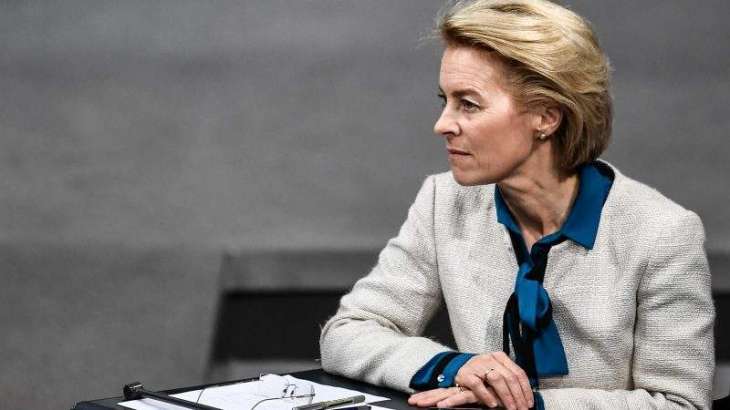Brexit will have a limited impact on European Union foreign and security policy, in contrast to other areas of cooperation that will be more severely affected, European Commission President Ursula von der Leyen said in an interview with German weekly Der Spiegel, published on Friday
BERLIN (Pakistan Point News / Sputnik - 27th December, 2019) Brexit will have a limited impact on European Union foreign and security policy, in contrast to other areas of cooperation that will be more severely affected, European Commission President Ursula von der Leyen said in an interview with German weekly Der Spiegel, published on Friday."The security and foreign policy consequences of Brexit will not be that serious. Unlike in other areas, the UK was very restrained in their overall security policy, and inhibited progress within the European Union," von der Leyen said.
The European Commission president pointed to the fact that proposals to establish a European defense union were only able to progress once the result of the June 2016 Brexit referendum was known, given that the UK stressed the primacy of NATO in defense matters.
In September of that year, during his State of the Union speech, then-European Commission President Jean-Claude Juncker proposed a number of measures that would be fundamental to the defense union, such as the creation of the European Defence Fund, establishing a single operational headquarters and moving towards creating common military assets.
Von der Leyen confirmed that both London and Brussels will continue to work together in their common interests, despite the UK's desire to leave the European Union.
"Both sides are currently striving for close cooperation," von der Leyen remarked.
The United Kingdom looks set to make serious strides in completing Brexit next year, after the country initially voted to leave the EU in a 2016 referendum. Newly re-elected Prime Minister Boris Johnson managed to get the second reading of his Withdrawal Agreement Bill passed by the House of Commons last week, aided by the large Conservative majority achieved in the snap general election held on December 12. Johnson has until January 31 to agree the deal with the European Union, while a trade deal must be signed by December 31, 2020.
Boris Johnson's withdrawal agreement was rejected multiple times by parliament while the prime minister headed a minority government. In the recent election, the Tories surged to victory, gaining 365 of 650 seats in the Commons. Johnson's Primary election pledge was to "get Brexit done."




